As soon as you start shopping for a new home or refinancing your current home loan, everyone wants to talk interest rates. Interest rates are important to the overall cost of borrowing, but there’s only so much you can control — and there are many other important factors, too.
If you’re worried about rising interest rates and you’re looking to buy or refinance a home in Charlotte, here’s what you need to understand.
How Interest Rates are Set
In North Carolina and everywhere else, different lenders set their own mortgage interest rates. But they aren’t pulling the numbers out of thin air: many different factors go into it.
The Fed Funds Rate Influences Mortgage Rates
To begin with, mortgage interest rates are influenced by the “Federal Funds Rate,” or the fed funds rate. This is the rate that banks lend money to each other. It’s limited by the Federal Reserve, which has a stated goal of keeping the U.S. economy in check.
When the fed funds rate is low, other interest rates are, too. The fed funds rate was almost at 0% during the Covid-19 pandemic, so banks could charge borrowers low rates, too, and still make a profit (which keeps them in business).
Now that the Federal Reserve has begun raising the fed funds rate, mortgage rates are going up, too. That affects what rates are available when you’re shopping for a new loan. It can be tough on borrowers, but the Fed hopes that the end result will be to slow down inflation and keep the economy under control.
Market Competition Has an Effect
In addition to the fed funds rate, mortgage lenders compete with each other for your business. They are trying to set rates that are low enough to attract borrowers, but high enough to be profitable for the business.
Different lenders are going after different types of borrowers and pricing their loans accordingly. One mortgage company might offer low rates, but charge high fees and other costs. Another company might have slightly higher rates, but they’re worth it because of the extremely helpful service you get in return. Each company is vying for business with different rates, products, service, and support, which lets borrowers pick the solution that’s best for them.
Your Own Personal Situation Plays Into It, Too
In addition to these other factors that affect interest rates, your own financial situation plays a part as well, from your credit score to your existing debt — even the type of job you have, or your income.
Mortgage lenders take all of these factors into consideration when coming up with your mortgage offer. They base the rate on how risky it would be to extend a home loan to you. If you have shaky employment and a lot of debt, they make require a higher interest rate to compensate. Or if you have superb credit and hardly any debt, they might want you as a customer – and try to make their loans more attractive with a lower rate.
What You Cannot Control
Clearly, there are some factors that go into mortgage interest rates that you can’t control. For instance, you can’t control the economy! Economic conditions are what they are, and you can’t change the rate of inflation or stop a recession from happening. Away on Wall Street, stocks, bonds and other securities change hands frequently, causing effects at distant banking institutions (such as with Great Recession of 2008, when subprime mortgages were traded recklessly, eventually leading to the collapse of several huge banks).
Neither can you control how mortgage lenders do business, compete with other companies, or market their products. You can’t influence the mortgage bond market or stop market forces from occurring.
The best you can do is control your own situation and choose a Charlotte mortgage lender with your best interests at heart.
What You Can Control
Here are several things that are in your control that can help to lower your mortgage interest rate.
- Your credit score
- The price of the house (compared to what you need to borrow)
- The type of home you buy
When it comes to getting good rates, the best thing you can do (starting today) is to work on improving your credit score. Making all your payments on time is a great start; so is making all your minimum payments.
If you can pay down your most expensive debt (such as credit card debt), all the better. Every little bit helps, and you can start seeing results in just a few months if you focus on it. You may also qualify for credit score help from our CrediTools team here at Fairway Mortgage of the Carolinas. They can show you how to get your credit score into range for a conventional mortgage quickly.
Another effective way to get better rates is to manage the ratio of the price of the home compared to what you need to borrow. This is called the loan-to-value ratio, or LTV. For instance, if you wanted to buy a house that was $100,000, but you needed a loan of $95,000 to buy it, your LTV would be 95%. Lenders give better rates to lower LTVs, so that’s why it’s good to save up a nice down payment (or look for a less expensive home).
Lastly, the type of home you buy can influence rates too. If you’re trying to buy a single-family home that you’ll live in as your primary residence, you’ll get better rates than if you’re buying a condo you intend to rent out as an investment property.
Locked Vs. Floating Rates
Another question you may have is whether to choose locked or floating rates when you’re mortgage shopping.
Locked rates are fixed in place when you apply for a mortgage, so even if market rates go up or down, your own rate will stay locked. People who are worried that rates will keep going up will want to lock in a favorable rate ASAP.
If you choose a floating rate instead, then the rate might go up or it might go down before you lock it in. If you think rates might go down again, you can choose a floating rate to try to take advantage of that.
ARM vs. Fixed Rates
Another key consideration regarding rates: choosing ARM vs. Fixed Rates.
An Adjustable Rate Mortgage, or ARM, is a mortgage where your interest rate can change. Usually this type of mortgage starts out with a great “intro” rate, and then the rate adjusts periodically for the rest of the loan term. People who don’t expect to be in their home long might choose an ARM to take advantage of the great intro rates.
A fixed-rate mortgage, on the other hand, has the same interest rate for the entire length of the mortgage. It will never change.
One nice thing about either of these types of interest rates is that you can refinance if you decide they aren’t working out for you.
So if you choose a fixed-rate mortgage so that you can buy your house, but you’re not thrilled about the interest rate, you can refinance in a couple years when rates come back down. The same goes for ARMs — if your rates go up in a couple years, and you’re not happy, that’s a great time to explore refinancing.
There’s More to Your Mortgage Than Rates
Rates aren’t everything. While it’s great to get a rock-bottom interest rate on your mortgage, there are so many other things to consider. Just like with any other purchase, you get what you pay for. And you don’t always have to wait around for the “best” rate: sometimes you need to accept current market conditions as they are, and not let them prevent you from living your life.
After all, in the 1980s, mortgage rates hit 16% — and that didn’t stop new homeowners from buying their homes. They saved, they refinanced, and over time, they enjoyed the equity gained from homeownership.
You can do the same.
If you’re looking for a Charlotte mortgage lender that can help you through the whole home loan process, reach out to Fairway Mortgage of the Carolinas. Our team can help you navigate the world of mortgage interest rates to find just the right mortgage for your situation.
References
https://www.quickenloans.com/learn/how-are-mortgage-rates-determined
https://www.rocketmortgage.com/learn/how-are-mortgage-rates-determined
https://www.thebalancemoney.com/how-are-mortgage-rates-determined-1798392
https://www.bankrate.com/mortgages/todays-rates/
https://www.rocketmortgage.com/learn/historical-mortgage-rates-30-year-fixed





